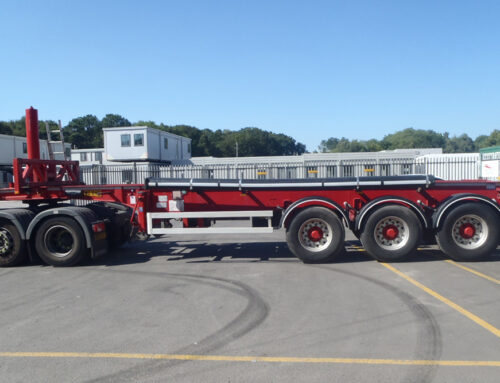The dry bulk tanker industry is responsible for the transportation of materials, such as grains, coal, and cement. Dry bulk tankers rely on road transportation for mass transit, supporting the supply chain of many industries, including agriculture, mining, and construction. However, safety and environmental regulations are critical and essential considerations to ensure the protection of both the public and the environment.
Accident Prevention
Dry bulk tanker accidents or spills can occur due to driver error, mechanical failure, traffic collisions or poor maintenance.
As a result, industry organisations have developed safety guidelines and regulations for the operation of dry bulk tankers operating on public roadways. These guidelines cover areas such as driver training, vehicle maintenance, and emergency response planning.
Emissions Reduction
The dry bulk tanker industry is also facing increasing pressure to reduce emissions and improve environmental standards.
As with any road vehicle, dry bulk tankers are a contributor to air pollution and climate change, primarily due to the use of fossil fuels.
Many government bodies have implemented regulations aimed at reducing emissions from the transportation sector, such as the use of low emission vehicles and the implementation of fuel efficiency standards.
Emerging Technology
The dry bulk industry is also taking steps to reduce their environmental impact by investing in new technologies and alternative fuel sources.
For example, some companies are investing in electric and hybrid vehicles, the use of which can significantly reduce emissions and improve fuel efficiency.
Additionally, some companies are experimenting with the use of alternative fuels, such as compressed natural gas (CNG) and liquid natural gas (LNG), which could result in decreased carbon footprint.
Loading and Unloading Procedures
Accidents don’t always happen on the road, as safe loading and unloading of dry bulk tankers is crucial.
Failure to follow the correct procedures can result in accidents such as spills, leaks, and, in some serious cases, explosions. To prevent or reduce the likelihood of these incidents, operators must ensure that the right equipment is used and that the appropriate safety procedures are followed.
Driver Training
Dry bulk tanker drivers require comprehensive training in order to handle equipment safely.
They must be familiar with the different types of cargo, how to handle the tanker, and the procedures to follow in case of an emergency.
Vehicle Maintenance
Maintenance of dry bulk tankers is crucial to ensure that they are safe to operate. All equipment must be inspected and maintained regularly to prevent mechanical failure that could result in an accident.
Emergency Preparedness
In the event of an accident or emergency, operators must have a plan in place to respond quickly and effectively. Drivers must be trained in emergency response procedures, and the appropriate equipment, such as spill kits and fire extinguishers, must be available.
Environmental Considerations
Air Pollution
Dry bulk tankers transporting dusty or gaseous cargo can contribute to air pollution.
Operators must ensure that the tanker is equipped with appropriate filtration systems to reduce emissions, and drivers must follow procedures to minimise dust generation during loading and unloading.
Noise Pollution
Dry bulk tanker operations, particularly loading and unloading, can generate noise pollution.
Operators should ensure these activities are conducted at appropriate times and locations to minimise disruption to nearby communities.
Waste Disposal
The disposal of waste generated during the operation of tankers must be managed carefully. Operators must ensure that waste is disposed of in accordance with relevant regulations and that it does not cause harm to the environment.
Regulations and Standards
In addition to these considerations, operators of dry bulk tankers must also comply with various regulations and standards related to safety and the environment.
These regulations include those related to the handling and transportation of hazardous materials, the operation of commercial vehicles, and environmental protection.
For example, the International Maritime Dangerous Goods (IMDG) Code, provides guidance on the safe transportation of hazardous materials by sea. This code sets out requirements for the labelling, packaging, and handling of hazardous materials. It also providers details of emergency response procedures in the event of an incident.
Similarly, the European Agreement concerning the International Carriage of Dangerous Goods by Road (ADR), sets out the requirements for the transport of dangerous goods by road in Europe. The ADR covers issues such as the classification and labelling of dangerous goods, the equipment required for their transportation, and the training of drivers and other personnel involved in their transport.






